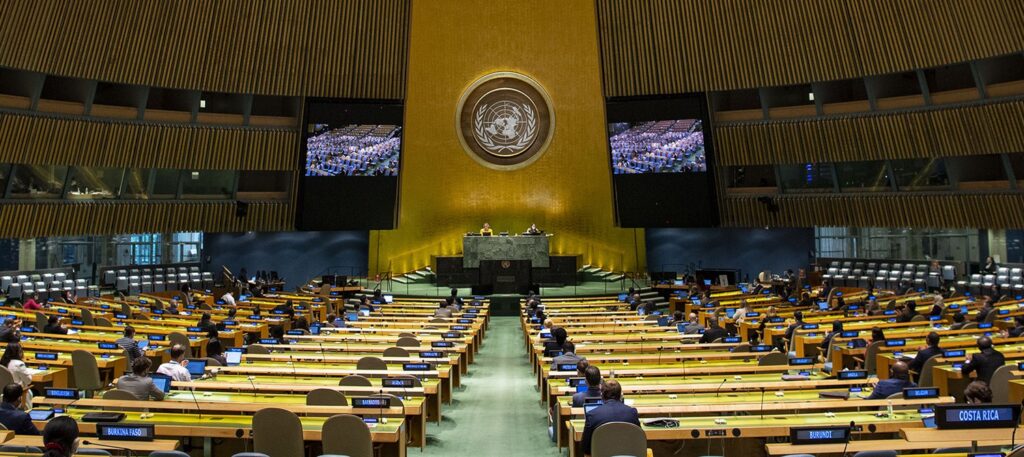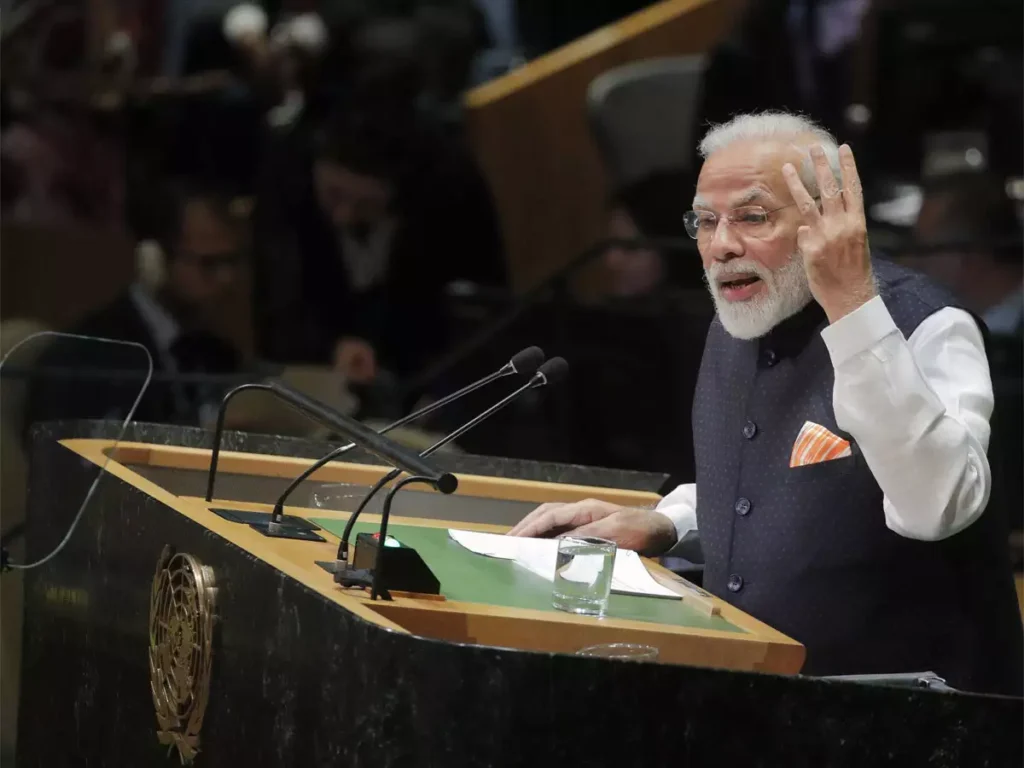
UN’s Global Role: The Heartbeat of World Governance
The UN Pact for the Future Impact redefines global governance, positioning the UN as an integral force in shaping world peace, security, and the well-being of populations. As the de facto global government, the UN is empowering nations and institutions to work together for the common good, becoming a central body influencing not just global peace but also social, economic, and environmental stability.
The role of the United Nations in maintaining peace and security is pivotal. Through peacekeeping missions, humanitarian interventions, and fostering diplomacy, it has had a profound impact on conflict resolution and cooperation among nations. The UN has been a constant promoter of global initiatives that safeguard human rights and uphold international law.
Moreover, the UN’s governance structure gives a platform for nations to voice concerns, form coalitions, and address common challenges in a way that empowers cooperation over confrontation. In this section, we explore how the UN Pact for the Future Impact helps build stronger global governance through strategic collaboration.
| Permanent Member | Veto Power |
|---|---|
| United States | ✅ |
| Russia | ✅ |
| China | ✅ |
| France | ✅ |
| United Kingdom | ✅ |
History and Purpose of the UN: A Legacy of Peace
The UN Pact for the Future Impact is rooted in the UN’s foundational mission to maintain peace and promote security. Established in 1945, the United Nations was born out of the aftermath of World War II, aimed at preventing future global conflicts and addressing the humanitarian crises that arose from the war.
The primary goal of the UN has always been to foster international cooperation and peace. Over the years, the organization has expanded its mandate to include humanitarian projects, human rights protection, and the achievement of the Sustainable Development Goals (SDGs). With over 193 member states, the UN plays an instrumental role in facilitating collaboration among diverse nations for the betterment of humanity.
As we delve deeper into the UN’s purpose, we can understand how the Pact for the Future Impact aligns with its historic goals of peacekeeping, development, and human rights. The UN’s initiatives have evolved, adapting to new challenges, such as digital governance and sustainability, to ensure global stability.
| Founding Year | Primary Goal | Key Areas of Focus |
|---|---|---|
| 1945 | Promote Global Peace | Diplomacy, Crisis Management |
| Peacekeeping | Prevent Future Wars | Human Rights, Conflict Resolution |
| Humanitarian Aid | Address Post-War Human Needs | Refugee Assistance, Health Care |
| SDGs | Global Sustainable Growth | Economic Equality, Climate Action |
| Security Council | Ensure International Security | Nuclear Disarmament, Peacekeeping |
| UN Agencies | Humanitarian Projects | Education, Healthcare, Development |
UN’s Digital Governance: Balancing Innovation and Freedom
In the UN Pact for the Future Impact, digital governance plays a critical role in shaping the global digital landscape. The UN has committed substantial financial resources toward creating frameworks for digital governance, including proposals that seek to combat misinformation, improve cybersecurity, and regulate digital spaces.
However, some critics argue that this push towards digital governance might limit free speech. Proposals to create global oversight of online content and digital behavior have raised concerns about the extent to which governments or international organizations should control digital platforms. This section looks at the UN’s role in regulating digital platforms and ensuring that the digital world operates within established norms and values.
The UN Pact for the Future Impact suggests that the world must adapt to the digital era, with the UN spearheading digital cooperation frameworks that balance governance with personal freedom. The aim is not to stifle innovation but to create a secure, stable digital environment that fosters progress.
| Digital Initiative | Purpose | Potential Risks |
|---|---|---|
| Misinformation Regulation | Combat Fake News | Limiting Free Speech |
| Cybersecurity Investments | Protect Digital Infrastructure | Overreach in Online Surveillance |
| AI Governance Framework | Develop Ethical AI Practices | Unforeseen Impact on Privacy |
| Digital ID Proposals | Create Secure Digital Identity | Privacy Breaches |
| Online Content Regulation | Control Harmful Content | Censorship Risks |
| Data Protection Laws | Safeguard User Data | Global Control Over Personal Data |

SDGs and Technology: The Future of Global Development
The UN’s 17 Sustainable Development Goals (SDGs) serve as a roadmap for global progress. By 2030, the UN aims to address critical challenges such as poverty, hunger, and inequality while advancing technological solutions to improve life for billions around the world.
Technology, including innovations like CBDCs (Central Bank Digital Currencies), digital IDs, and smart cities, plays a pivotal role in achieving the SDGs. However, the growing reliance on technology raises concerns about surveillance, privacy, and control. The UN Pact for the Future Impact emphasizes the importance of using technology responsibly, ensuring that it serves humanity’s collective needs without compromising individual freedoms.
As the UN promotes technological integration, this section explores how global cooperation in technology can pave the way for achieving the SDGs while ensuring that the rights of individuals remain safeguarded.
| Tech-Driven SDG | Implementation Tool | Potential Benefits |
|---|---|---|
| Climate Action | Renewable Energy, Smart Cities | Reduced Carbon Footprint |
| Economic Equality | Digital Financial Inclusion | Increased Access to Resources |
| Health and Well-being | Digital Health Platforms | Improved Global Healthcare Access |
| Education for All | Online Learning, E-Learning | Accessible Education Worldwide |
| Gender Equality | Empowerment Through Digital Tools | Equal Access to Opportunities |
| Poverty Alleviation | Tech Solutions for Agriculture | Better Food Security |
The Pact for the Future: Vision for a Global Framework
The UN Pact for the Future Impact offers a bold vision for global governance. This document outlines key initiatives aimed at addressing pressing global issues like poverty, hunger, nuclear disarmament, and human rights protection. Through collaboration and innovation, the UN envisions a more just, secure, and sustainable world.
The pact also calls for increased international cooperation in achieving these goals, leveraging both traditional diplomacy and technological solutions. The UN believes that a unified approach is essential to meet the challenges of the modern world, such as climate change, resource scarcity, and the growing digital divide.
By fostering collaboration across nations, sectors, and disciplines, the UN Pact for the Future Impact aims to create a global framework that will not only address these immediate issues but also pave the way for future generations.
| Key Issue Addressed | Target Goal | Collaborating Nations |
|---|---|---|
| Poverty and Hunger | Eradicate Extreme Poverty | All UN Member States |
| Nuclear Disarmament | Reduce Global Threat of War | Nuclear Powers, Global Leaders |
| Climate Change | Achieve Global Climate Action | Developed and Developing Nations |
| Human Rights Protection | Protect Vulnerable Populations | All Member States, NGOs |
| Gender Equality | Empower Women Worldwide | National Governments, UN Women |
| Sustainable Development | Implement SDGs by 2030 | Governments, International Bodies |

Focus on Technology and Digital Cooperation: Shaping Tomorrow
As part of the UN Pact for the Future Impact, the UN is keen on utilizing digital technologies, AI, and other innovations to strengthen global governance. The need for a coordinated global digital policy is critical, as technology transcends national borders and influences every aspect of life from economics to security.
The UN’s role in AI governance and data protection has become more pronounced, advocating for international agreements to regulate how data is collected, stored, and used globally. In addition, the UN is pushing for digital cooperation frameworks that ensure that digital tools are used in a way that promotes inclusivity, innovation, and accountability.
As we look towards the future, this section examines how digital collaboration can bridge divides, promote global prosperity, and ensure a secure digital ecosystem.
| Digital Innovation Focus | Global Impact | International Frameworks |
|---|---|---|
| AI Governance | Create Ethical AI Regulations | International AI Standards |
| Digital Cooperation Frameworks | Foster Global Digital Collaboration | Policy and Technology Agreements |
| Data Protection and Privacy | Safeguard Global Data Rights | International Data Protection Laws |
| Tech-Driven Economy | Expand Digital Economies Globally | Sustainable Digital Growth Models |
| Cybersecurity Frameworks | Secure Global Digital Infrastructure | Cybersecurity Treaties |
| Smart Cities and Sustainability | Promote Urban Development Worldwide | UN Smart City Guidelines |
Youth and Future Generations: Protecting Tomorrow’s Leaders
The UN Pact for the Future Impact is also focused on the development of youth and the protection of future generations. By prioritizing the rights of young people, the UN is ensuring that the next generation plays an active role in shaping global policies, particularly around digital governance, sustainability, and human rights.
The youth involvement frameworks emphasize that young people are not just passive recipients of policies but active participants in governance. These frameworks call for creating platforms for youth to engage, influence decisions, and have a voice in shaping global systems.
The UN is committed to ensuring that future generations inherit a world that is safer, more inclusive, and more just. This section will explore how the Pact for the Future directly benefits youth and promotes sustainable development.
| Youth Initiative | Purpose | Future Generations Impact |
|---|---|---|
| Youth Empowerment Framework | Involve Young People in Decision-Making | Strengthen Youth Voices in Governance |
| Global Education Campaigns | Provide Access to Global Learning | Equal Educational Opportunities |
| Climate Action and Youth | Engage Youth in Environmental Causes | Ensure Sustainable Future for Youth |
| Digital Literacy Programs | Equip Youth with Tech Skills | Prepare Youth for Future Job Markets |
| Health and Well-being of Youth | Promote Global Health Initiatives | Healthier Future Generations |
| Youth Leadership Programs | Develop Global Leaders | Shape Future Global Policy Makers |
Transformation of Global Governance: The Shift to a Unified Future
The UN Pact for the Future Impact proposes a radical transformation in global governance, focusing on centralizing control to address inefficiencies in the current system. By advocating for a new global order, the UN aims to build a more cohesive, cooperative, and inclusive world where nations work together more seamlessly.
This section explores the flaws in the existing system and how the UN plans to address them by shifting global governance from fragmented national policies to a more unified and globally integrated approach. The Pact for the Future suggests that the future of governance is interconnected, where national interests are balanced with global cooperation.
The UN’s vision for the future emphasizes strategic governance frameworks that adapt to modern challenges, focusing on peace, technology, and sustainable development as key pillars of a unified global order.
You Might Also Like
- What Is BRICS and How Could It Challenge the US Dollar?
- What is NATO? NATO Founding Principles Global Expansion
- India-Russia Nuclear Energy Cooperation: Volodin’s Key Visit
| Governance Objective | Key Challenges | UN’s Solution |
|---|---|---|
| Global Governance Framework | Fragmentation of Global Policies | Unified Global Policy Structures |
| Tech-Driven Governance | National Sovereignty Concerns | Collaborative International Tech |
| Peace and Security Framework | Regional Conflicts and Instability | UN Peacekeeping and Diplomacy |
| Sustainable Development | Economic Inequality and Climate Change | Global SDG Implementation |
| Digital Economy | Digital Divide and Access to Tech | Global Digital Cooperation |
| Global Disarmament | Nuclear Threats and Weapon Proliferation | Nuclear Disarmament Framework |



